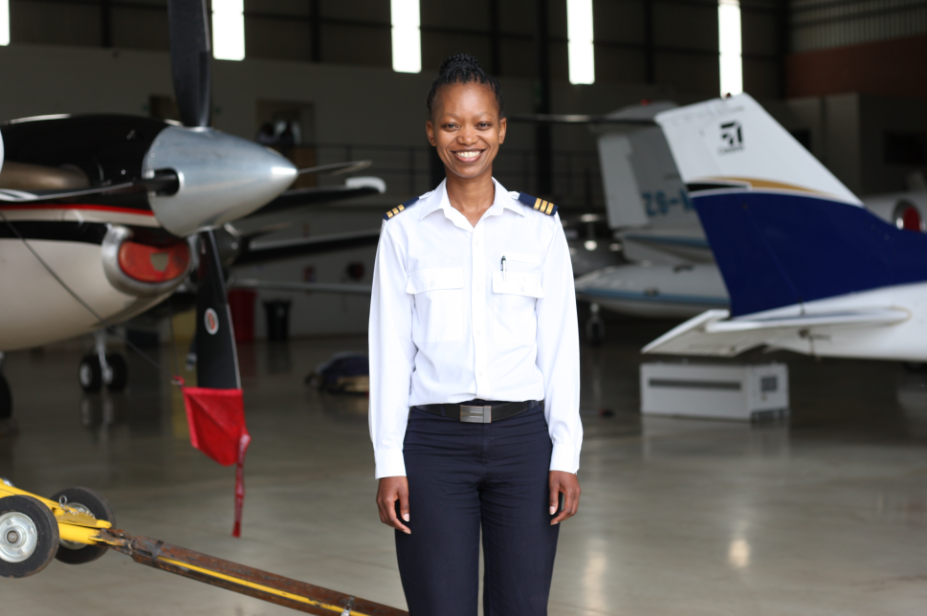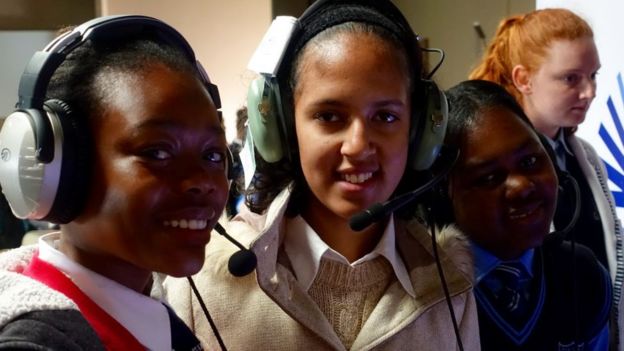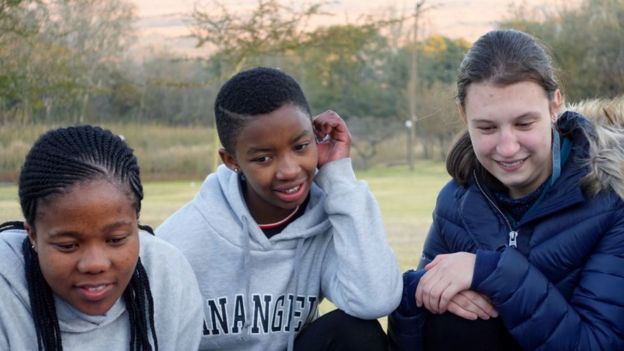“I never thought aviation or becoming a pilot was a viable career choice for me as I have never seen anyone that looks like me following that career,” that is a quote from Refilwe Ledwaba, South African Police Service’s first female pilot.
Born and bred in Lenyenye in a single-parent household with six siblings in a semi-rural township of the Limpopo province of South Africa, Ledwaba could not pursue a career in science due to outstanding university fees.
She ended up at an interview for a position in an industry she knew nothing about. She secured a position as a cabin attendant even though she had never been anywhere near a plane until she was 17.
“I think that it was one of my down moments because I am thinking that I worked so hard. I did well at the university. I am supposed to go to medical school but I can’t go now and now I have to become an air hostess. You think life dealt you another blow, but that is when everything changed,” she told Forbes Africa.
She would later become the first black woman to pilot a helicopter in the South African Police Service (SAPS). Today, she is a contract flyer for various charter companies on the continent.

Ledwaba, who is qualified to fly both helicopters and airplanes, credits her journey to the strong women in her community while growing up in an apartheid era.
South Africa’s first black female helicopter pilot and founder of the Southern African Women in Aviation and Aerospace Industry, is now on a mission to change the historical idea that aerospace is a “boys club”. She is doing so through the “Girl Fly Programme in Africa Foundation” (GFPA).
She founded the Girl Fly Programme in Africa Foundation, a non-profit organization empowering young women to take up science, technology, engineering, and mathematics (STEM) subjects in 2009.

Through GFPA, she is addressing the challenges she faced when entering the industry by breaking cultural and social barriers in aviation at the grassroots level.
Ledwaba has since left the police and now spends her time as an instructor. She’s getting girls interested in the aviation industry.

She organizes a flying camp for girls where they learn about robotics, coding, and aviation. “I want the girls to be successful. Not necessarily to choose to become pilots but to become confident young women who can contribute to society, our economy and give back to our communities,” she said.
Her dream is to groom South Africa’s next generation of female aviation experts and Africa’s future leaders in science.










